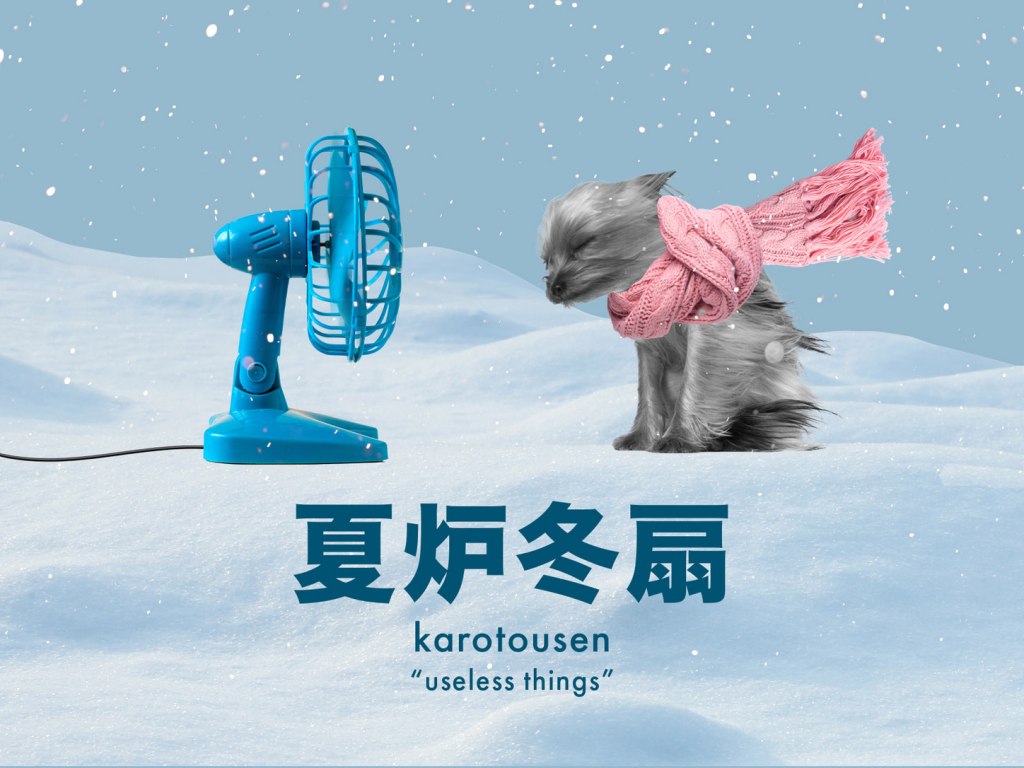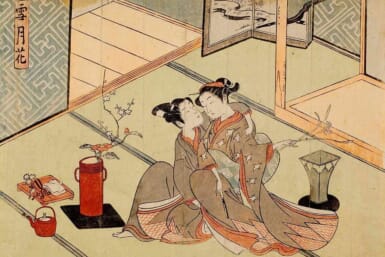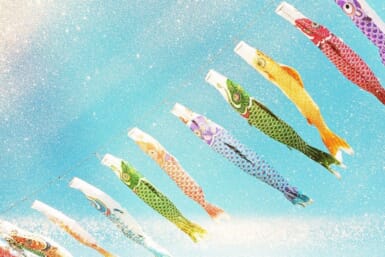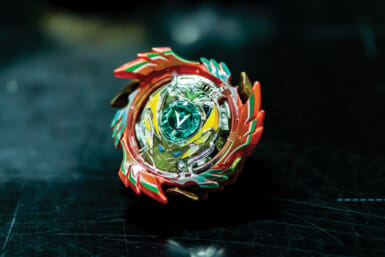If you’ve ever needed to explain an albatross around your neck — especially something outdated or untimely — then keep karotousen in mind. The expression conjures up images of kerosene heaters in summer and air-conditioners in winter — in short, useless things.
Karotousen (夏炉冬扇)
Meaning: Summer fire and winter fans, a white elephant, useless things or talents, something that is dated, not with the times or unseasonal, someone who has lost the favor of a sovereign, a woman abandoned by her lover
Literal translation and kanji breakdown: This is a conveniently literal compound, which reads summer (夏), hearth or furnace (炉), winter (冬) and fan (扇). Ro (炉) refers explicitly to irori (囲炉裏), the sunken hearth often found in older homes, while sen (扇) implies the summer must-have, the uchiwa fan. Because of the pairing (summer and hearth, winter and fan), it’s easy to deduce that a hearth isn’t much use in summer and neither is a fan for cooling down in winter. Thus, these are useless items — at least at the time of usage. For a more modern take, we could use heaters and air conditioners.
Karotousen: The Origins
As is often the case with yojijukugo, the original expression — or a version of it — hails from China. In this case, sources claim it is first mentioned in Confucian scholar Wang Chong’s philosophical treatise Lunheng, written about 2,000 years ago during the later Han Dynasty (206 BC-220 AD). In the first volume, he writes something akin to “Offering useless talents and submitting useless opinions to the sovereign is like offering a heath in summer and a fan in winter.”
Karotousen: Related Expressions
- 陶犬瓦鶏 Toukengakei A ceramic dog and tile chicken; something fine in form, but useless in practice
- 六菖十菊 Rokushoujikkiku (also read as rikushoujyugiku) Late to the fair, too late to be of any use, late for an opportunity and thus worthless
- 時期尚早 Jikishousou Premature, too early to be relevant
- 屋上架屋 Okujyou-kaoku Gliding the lily, redundant things
- 月夜に提灯 Tsukiyo ni chouchin Using a lantern on a moonlight night; pointless actions
- 無用の長物 Muyou no choubutsu Deadwood, a white elephant, useless object
Using “karotousen” in a sentence
Karotousen isn’t that easy to slip into a full sentence, but is more likely to be used as a single word commentary to a pointless situation, item or talent.
- 夏が終わった頃にやっと店に冷感マスクが大量入荷したが、夏炉冬扇もいいところだ。Natsu ga owatta koro ni yatto mise ni reikan masuku ga tairyou nyuuka shita ga, karotousen mo ii tokoro da. At the end of summer, the store finally received a large shipment of cooling face masks, but they’re kind of pointless now.
- やっとiPhoneを手に入れたのに、すぐに新機種が発売されたから、買ったものは夏炉冬扇だ。Yatto aifon wo te ni ireta no ni, sugu ni shinkishu ga hatsubai sareta kara, katta mono wa karotousen da. I finally got my hands on the “new” iPhone just as the latest model was released. Talk about bad timing.
- このタイミングでの資料提出は、夏炉冬扇も同然だ。Kono taimingu deno shiryou teishutsu ha karotousen mo douzen da. It’s useless submitting those documents now.
Want more? Follow our weekly Yojijukugo Japanese Idiom series, published every Friday. Learn the meaning of “chinpunkanpun” here, “yudantaiteki” here and “taifu-ikka” here.









